It looks like you're using an Ad Blocker.
Please white-list or disable AboveTopSecret.com in your ad-blocking tool.
Thank you.
Some features of ATS will be disabled while you continue to use an ad-blocker.
36
share:
I was searching for various myths/stories of resurrection when I accidentally found the story of Barbarossa, and found it interesting enough to share.
Frederick Barbarossa was the king of the Holy Roman Empire from 1152 A.D. . He was known to be a very fierce, and passionate person, and he wished to bring back the Roman Empire to its former glory.
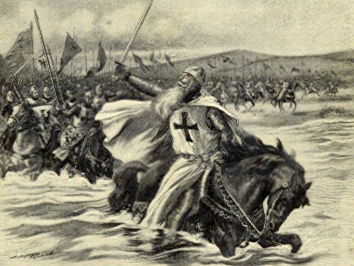
( I highly recommend reading the full story from my first provided link. It's well written. )
Upper Castle, Barbarossa tower and Kyffhäuser Monument, Kyffhäuser Mountain, Thuringia, Germany
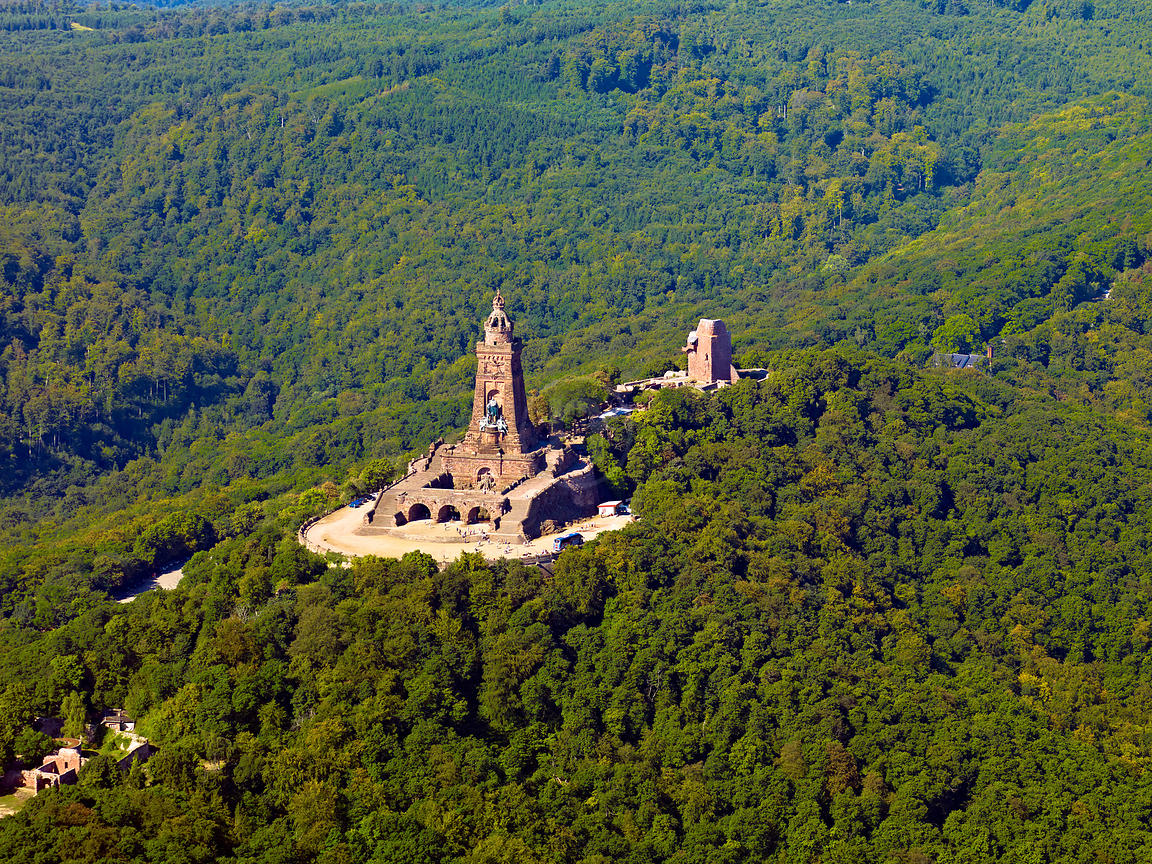
Kyffhäuser Monument
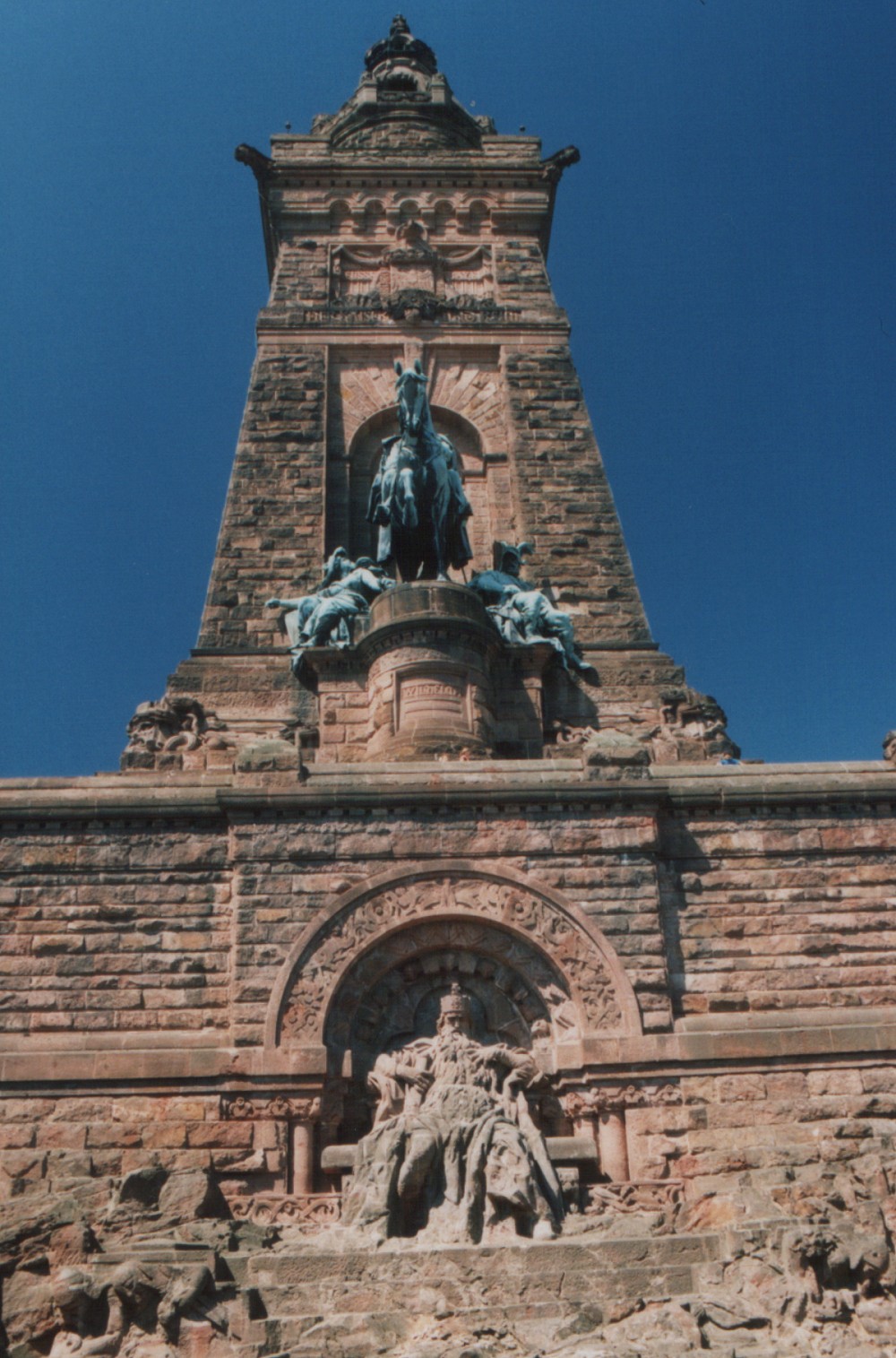
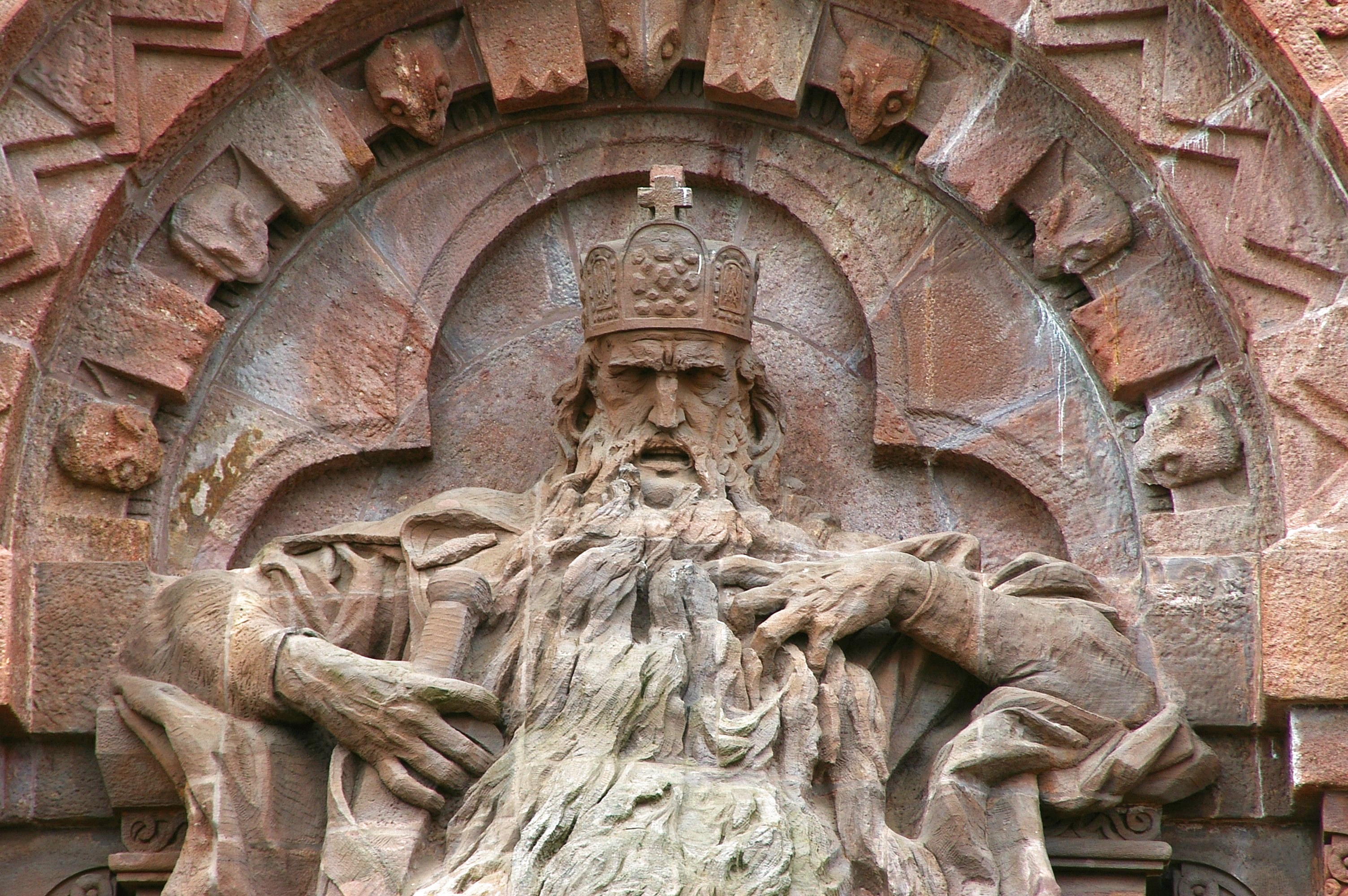
Location of the monument and history of the cave:

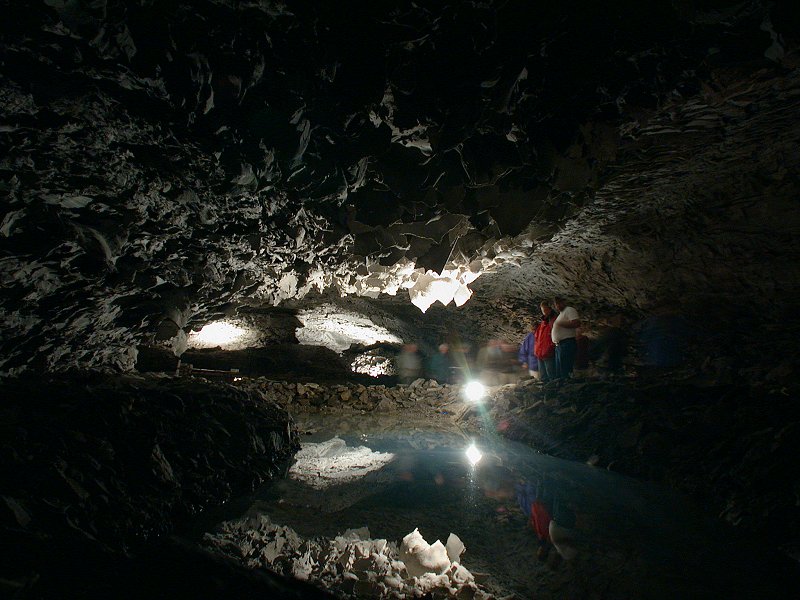
Interesting to note that he wasn't the only king or knight to be rumored to be immortal and sleeping in a cave until his country needed him again. There are so many more fascinating legends. King Arthur was also mentioned. Here are just a few to mention.
Holger the Dane
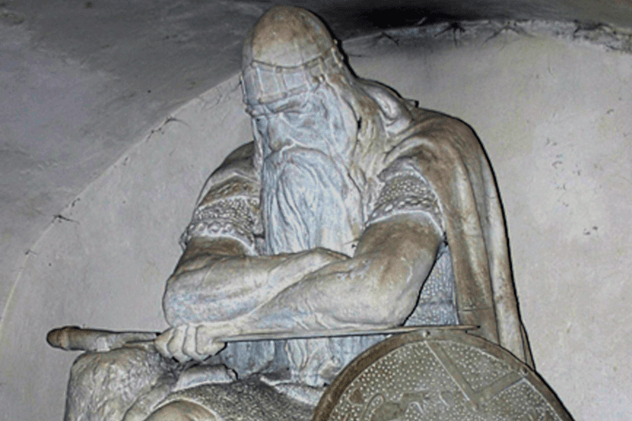
He was a Viking warrior who fought with Charles Martel against the Muslims at Poitiers in AD 732.
The Three Tells
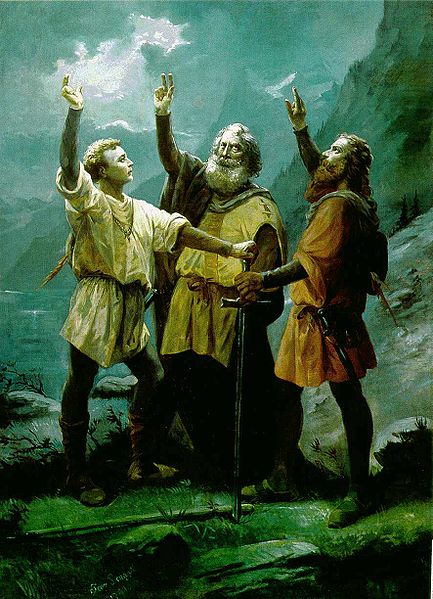
King Wenceslas
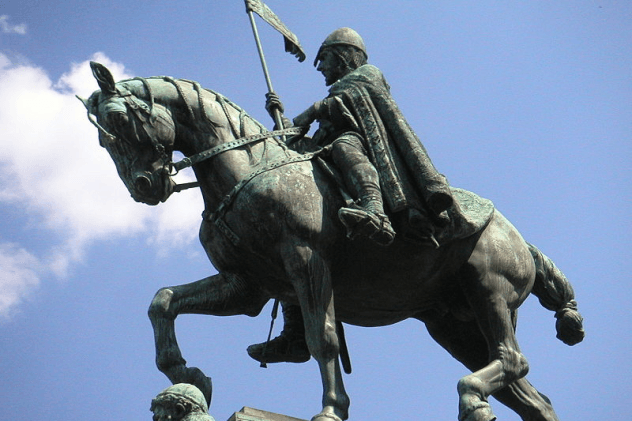
Sources:
www.heritage-history.com...
www.showcaves.com...
www.counter-currents.com...
listverse.com...
en.wikipedia.org...:Swiss_R%C3%BCtlischwur.jpg
Frederick Barbarossa was the king of the Holy Roman Empire from 1152 A.D. . He was known to be a very fierce, and passionate person, and he wished to bring back the Roman Empire to its former glory.

Three score and nine years old was the red-bearded king, Frederick Barbarossa. He was by right the master of Germany. He had subdued Italy and had been crowned in the imperial city of Rome. Throughout Europe his name was known and feared; in his own country he was the hero of heroes. He might have ended his days in quiet and peace, but such was not the wish of the iron-hearted warrior. War was his chosen pastime; war was his delight; and the glory of his country was his ambition. From the Holy Land, far over the sea, a call for help was sounded. The Saracens of the desert had captured Jerusalem; they had seized upon the Holy Sepulcher, so dear to every Christian heart; the sacred banner of the cross had been trailed in the dust. Throughout Europe there was great alarm. Devout men went from land to land preaching a crusade for the delivery of the holy places. Christian princes raised mighty armies and, crossing the seas, fought bravely to drive the unbelieving Saracens back to their native deserts. At such a time could Frederick Barbarossa remain idle at home?
He sounded the word of command; he put himself at the head of his armed hosts; he led them forth to the defense of the Holy Land. On a day in early spring his army arrived upon the banks of a broad stream in Asia Minor. The land of the Saracens was on the farther side; the banners of the Saracen army were seen in the distance. But the stream was deep and rapid, fed by ice-cold torrents from the melting snows of the mountains.
There was neither ferry nor ford; and the soldiers paused, fearing to go forward. Then Frederick rode up and down upon his prancing war steed. A thousand knights, clad in glittering suits of mail, were behind him. They were the flower of Germany, the bravest and best of the heroes of the Rhineland. The emperor's long beard streamed in the wind like the tail of a flaming red comet. His gleaming sword flashed like lightning as he waved it above his head. His voice was like rolling thunder as he turned in his saddle and called to his eager followers.
( I highly recommend reading the full story from my first provided link. It's well written. )
He turned his horse quickly and plunged into the stream. His thousand mailed knights upon their impatient horses followed him. The roaring waters leaped high to meet them. Horsemen and steeds battled bravely with the flood. They were borne down by the torrent; their heavy armor dragged them to the bottom; not one was able to reach the farther shore. Frederick Barbarossa was the last to be overcome. With the strength of a giant he fought his way to the middle of the stream. Then a great wave seized upon him. It hurled him from his steed, and bore him helpless along in the trough of the rushing current. The foot soldiers, watching from the shore, soon lost sight of the hero. The last they saw of him was his red beard streaming far behind, and his glittering sword, which he still held upright. They watched until there was no longer any sign of armored knight or warrior king, for the waters had closed over all. Then, as if moved by a single thought, they cried out in dismay and grief; they wept for their lost leader; they bewailed their own hard fate, thus left without guide or commander, in a strange and unfriendly land.
Suddenly a wonderful vision appeared to them. A holy monk, clad in long robes and holding a crucifix in his hand, stood upon the river bank at the spot from which Frederick the hero had leaped into the waves. He beckoned to them to listen.
"Why do you weep for your lost leader?" he said. "He is not dead. He has gone back to his own country and yours—to Germany; and with him are his mailed knights. In the Kyffhäuser Mountain, in the great hall of the immortals, Frederick Barbarossa rests with his chosen heroes. He will sleep there until the eagles shall cease to fly around the mountain peaks.
He will rest there until the time is ripe for the doing of mighty deeds. Then the bell shall toll the hour, the trumpet shall sound, and he will ride forth with his mailed knights to conquer the world. Weep no more; but return to your fatherland to wait for the day and the hour when your warrior king shall call you!" And having spoken these words the strange monk vanished. "Let us obey him and return to our homes," was the cry. But, alas, there were few in that great host who would ever see their fatherland again.
Upper Castle, Barbarossa tower and Kyffhäuser Monument, Kyffhäuser Mountain, Thuringia, Germany

Kyffhäuser Monument


Location of the monument and history of the cave:


Interesting to note that he wasn't the only king or knight to be rumored to be immortal and sleeping in a cave until his country needed him again. There are so many more fascinating legends. King Arthur was also mentioned. Here are just a few to mention.
Holger the Dane

He was a Viking warrior who fought with Charles Martel against the Muslims at Poitiers in AD 732.
Danish folktales, made popular by Hans Christian Andersen, say that Holger never died. Instead, he sleeps in the dark cellar of Kronenburg (Kronborg) Castle at Elsinore, the setting of Shakespeare’s Hamlet. Clad in full armor, Holger sits before a table, resting his head on his arm. His beard has grown long into the table as he slumbers and dreams of Denmark. Every Christmas Eve, an angel would visit to tell Holger that all his dreams have in fact happened and that he should go on sleeping until danger threatens Denmark. When that happens, he will wake up, tear his beard from the table, and defend his country.
The Three Tells

Switzerland has the Three Tells, or sleeping heroes, who sleep in a cave in a cliff up in the wild mountainous region surrounding Waldstatter Lake. They are clad in ancient clothes and will arise when their country needs them. A legend has it that a shepherd boy told a traveler that his father had been looking for a lost goat up in among the cliffs when he came upon the cave of these three sleeping men. He recognized them at once as the Three Tells; one of them roused and asked him “What time is it on earth?,” to which he answered “High noon.” The Tell said “It is not yet time for us to come” and went back to his slumber. Try as he might to find the cave again, the father never could.
King Wenceslas

“Good King Wenceslas” of the popular Christmas carol was an actual historical figure. Wenceslas ruled over Bohemia in the 10th century. Czechs hail him as the founder of the Czech state. Wenceslas was renowned for his learning and Christian piety. It was his misfortune to be defeated in war by the Saxon king Henry I the Fowler, who forced him to pay tribute. This didn’t sit well with Weneceslas’s ambitious brother, Boleslav, who had Wenceslas assassinated and took the kingdom for himself.The Czechs mourned the loss of their good King Wenceslas, and the martyr was made the patron saint of Bohemia. Miracles in his name were reported. A persistent legend states that Wenceslas is actually sleeping with an army of knights deep within Blanik Mountain.
Sources:
www.heritage-history.com...
www.showcaves.com...
www.counter-currents.com...
listverse.com...
en.wikipedia.org...:Swiss_R%C3%BCtlischwur.jpg
Constantine Palaiologos
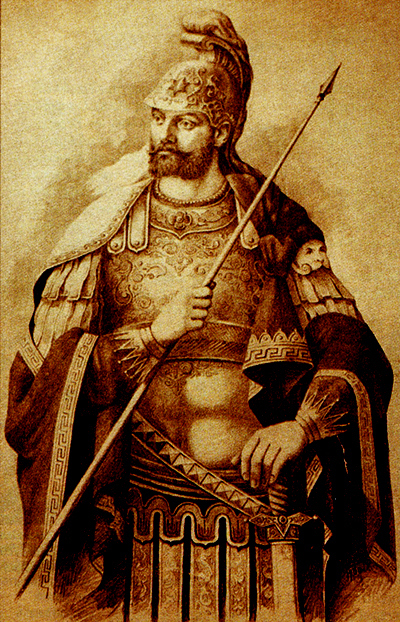
Source:
greatestgreeks.wordpress.com...
I remember reading something years ago about a legend of King Stephen, later known as St. Stephen of Hungary (died 1038 A.D). We all know his mummified right hand has been returned to Hungary and is considered a religious artifact, but there is also a story somewhere how the founder of the Hungarian state, St. Stephen shall one day return to save his people, and rule over them once again. I wish I could find a source for it, but so far have been unsuccessful. I even remember once reading about that legend in a library, and it fascinated me. I'll keep on searching. If you have heard of this legend and have a link please share.

Last Byzantine Emperor (1405 – 1453) Constantine Palaiologos, the Immortal King, was born in 1405, at a time when the Byzantine Empire was at its final years. Having suffered from Iconoclasms, 2 bloody Crusades, the Latin invasion and countless raids by neighbouring clans, the Byzantine Empire had taken severe losses on its population, lands and its glory. Before his time as an emperor, Constantine had liberated Peloponnesus from Frankian rule, together with his army and established a powerful operations center.
He had then continued north and liberated parts of Steraia Hellada and Thessaly. His plans to continue and liberate northern parts of his empire, however, failed and he retreated back to Peloponnesus. When John Palaiologos died childless in 1448, his brother Constantine succeeded him as Emperor of the Byzantine Empire. The coronation took place in Constantine’s hometown, the holy city of Mystras. He was the first and only Byzantine Emperor to be crowned outside of Constantinople. As soon as Constantine was crowned emperor, he was faced with a massive undertaking. With almost nothing left but Peloponnesus and a small part of Eastern Thrace, the empire was on the brink of collapse. His army was very small and his resources scarce. But the greatest challenge with which he was tasked was the enormous army of the Ottoman Empire that was rapidly approaching Constantinople, lead by Mehmed the Conqueror. As emperor, he put all his efforts to keep the empire alive. His politics were different from those of his brother’s. John sought help from the West by participating in the Council of Ferrara-Florence. His attempts to reunite the Byzantine and Latin churches, however, failed. Constantine, on the other hand, was against the Latins, having been sworn enemies of the Byzantine Empire. His main concern was to defend Constantinople, otherwise, it would mean the end of a 1000 year old empire.
When he arrived at Constantinople, he started organizing the army and strengthening the defenses of the city. He received help only from the Republic of Genoa, lead by Giovanni Giustiniani. The siege lasted for many days with huge casualties from the Ottoman army. Nevertheless, with an army of just 8500 against an army of 180.000, massive cannons and a fleet of 150 ships, it was only a matter of time before the city’s walls could hold much longer. Weakened, but determined, Constantine and his men showed unlimited courage and continued to defend the city with all their might. One day before the Fall, Constantine made his final speech, in which he addressed all his people in an effort to increase their spirit, saying among others that there were 4 reasons that they should prefer death over life: first for their faith, second for their homeland, third for their king and Jesus Christ and fourth for their families and friends. During the closure of his speech, with tears in his eyes, he prompted his men to fight till the death for Jesus Christ and their homeland. On May 29, 1453, the Ottoman Turks breach the walls of the City and vast amounts of soldiers quickly surround Constantine and his faithful men. After having fought fiercely with a broken sword, Constantine falls like a lion beside his fellow men. It was the end of the Byzantine Empire, after nearly 1000 years of existence.
Legend has it that moments before his death, an angel appeared and took Constantine off his horse and into a cave, where he transformed him into marble. Till this day, the Marble King awaits in his cave, the day that he will rise like the Phoenix to reclaim Constantinople and re-establish the Byzantine Empire, chasing the Turks faraway to the Red Apple Tree.
Source:
greatestgreeks.wordpress.com...
I remember reading something years ago about a legend of King Stephen, later known as St. Stephen of Hungary (died 1038 A.D). We all know his mummified right hand has been returned to Hungary and is considered a religious artifact, but there is also a story somewhere how the founder of the Hungarian state, St. Stephen shall one day return to save his people, and rule over them once again. I wish I could find a source for it, but so far have been unsuccessful. I even remember once reading about that legend in a library, and it fascinated me. I'll keep on searching. If you have heard of this legend and have a link please share.
edit on 25-3-2016 by Harut because: added a thought
edit on 25-3-2016 by Harut
because: (no reason given)
edit on 25-3-2016 by Harut because: spelling
My apologies, please disregard the last entry about the resurrection of St. Stephen. I remembered it wrong. It was Hungarian king Matthias I that was
said to return one day.
King Matthias Corvinus, king of Hungary and Croatia
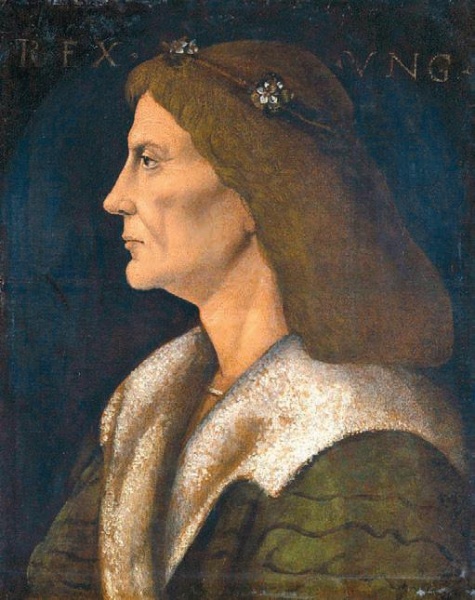
Reign : 1458–1490
Slovenian folklore says the following:
Source: earthenchivalry.wordpress.com...
Phew! Glad I got that sorted out.
What was it with all these resurrection legends of all these European medieval kings?
Was it wishful thinking? Were they following the example from the bible?
King Matthias Corvinus, king of Hungary and Croatia

Reign : 1458–1490
Slovenian folklore says the following:
The image of the sleeping king residing under a hill or mountain seems to be a popular one. From my own culture the first image that springs to mind is that of King Arthur, but it could equally be applied to Merlin and Bran the Blessed. Slovenia too has a similar legend that of King Matjaž (Kralj Matjaž). King Matjaž was a just king whose throne sat at Krn castle. His rule was the golden age, and always was he ready to help those in need. But other kings were very envious of his power so they united their armies against him and with the battle that followed only King Matjaž and a hundred of his men survived. They retreated to Mount Peca which protected from their enemies and shelters their sleeping forms to this day. Around a stone table they all sit and it is said that when King Matjaž’s beard circles it nine times they will again awake and the golden age of Slovenia will be renewed.
Source: earthenchivalry.wordpress.com...
Phew! Glad I got that sorted out.
What was it with all these resurrection legends of all these European medieval kings?
Was it wishful thinking? Were they following the example from the bible?
edit on 26-3-2016 by Harut because: added picture
new topics
-
Electrical tricks for saving money
Education and Media: 1 hours ago -
VP's Secret Service agent brawls with other agents at Andrews
Mainstream News: 2 hours ago -
Sunak spinning the sickness figures
Other Current Events: 3 hours ago -
Nearly 70% Of Americans Want Talks To End War In Ukraine
Political Issues: 3 hours ago -
Late Night with the Devil - a really good unusual modern horror film.
Movies: 5 hours ago -
Cats Used as Live Bait to Train Ferocious Pitbulls in Illegal NYC Dogfighting
Social Issues and Civil Unrest: 6 hours ago -
The Good News According to Jesus - Episode 1
Religion, Faith, And Theology: 8 hours ago -
HORRIBLE !! Russian Soldier Drinking Own Urine To Survive In Battle
World War Three: 10 hours ago
top topics
-
SETI chief says US has no evidence for alien technology. 'And we never have'
Aliens and UFOs: 17 hours ago, 8 flags -
Cats Used as Live Bait to Train Ferocious Pitbulls in Illegal NYC Dogfighting
Social Issues and Civil Unrest: 6 hours ago, 8 flags -
Florida man's trip overseas ends in shock over $143,000 T-Mobile phone bill
Social Issues and Civil Unrest: 13 hours ago, 8 flags -
VP's Secret Service agent brawls with other agents at Andrews
Mainstream News: 2 hours ago, 7 flags -
Former Labour minister Frank Field dies aged 81
People: 15 hours ago, 4 flags -
Bobiverse
Fantasy & Science Fiction: 13 hours ago, 3 flags -
HORRIBLE !! Russian Soldier Drinking Own Urine To Survive In Battle
World War Three: 10 hours ago, 3 flags -
Nearly 70% Of Americans Want Talks To End War In Ukraine
Political Issues: 3 hours ago, 3 flags -
Sunak spinning the sickness figures
Other Current Events: 3 hours ago, 3 flags -
Late Night with the Devil - a really good unusual modern horror film.
Movies: 5 hours ago, 2 flags
36
